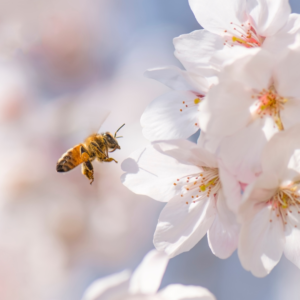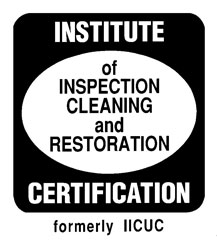
Planning to plant a garden this spring? If you plant fruits or vegetables, you need to attract bees!
Canada has 800 species of native bees, ranging from tiny black foragers to blue orchard bees and yellow-striped bumblebees, plus the honey bees we’ve all heard about! The survival of these important pollinators is essential to SO many things we eat.
Bees have 3 basic needs: Food, water & shelter.
- Food: Flowering plants provide both nectar and pollen bees need for energy & feeding their young.
- Water: From puddles to shallow water between rocks – even muddy areas are appropriate water sources for bees.
- Shelter: They need to be protected from the cold & the wind
Bees *don’t* need large, showy plants (usually little to no pollen) and certainly no pesticides/insecticides.
So what should you plant in your bee garden? 🐝
- Native plants (wildflowers) attract 4 times as many pollinators as non-natives! Use native plants as much as possible.
- Several colours of flowers: blue, violet, white & yellow are most attractive to bees.
- A range of plants that bloom throughout the season: bee season is March through October – crocus & heather bloom in early spring, lavender & calendula in late fall.
- Plant flowers of various shapes: from daisies & buttercups for smaller bees, to columbine & mint for larger bees. Species of bees all have different tongue lengths.
- Cluster flowers together in patches so that bees don’t waste energy flying long distances between flowers.
- Plant in sunny areas with some protection from the wind – bees prefer this over shady or windy open spots.
Here are some more great options for flowers, herbs & fruits/vegetables, just be sure to choose native & non-hybrid varieties whenever possible:
- Flowers: Aster, Black-eyed Susan, Bleeding Heart, Cosmos, Goldenrod, Marigold, Poppy, Salvia, Tansy, Zinnia.
- Herbs: Basil, Bee Balm, Catnip, Cilantro, Chives, Fennel, Hyssop, Oregano, Rosemary, Thyme.
- Fruits/Vegetables: Apple tree, Blackberries, Blueberries, Cherry tree, Cranberries, Eggplant, Hazelnut tree, Peppers, Plum tree, Pumpkin, Raspberries, Squash, Strawberries, Tomatoes, Watermelon.
What if you live in an area with deer and your plants keep getting eaten? Well, luckily some pollinator friendly plants are resistant to deer!
Allium, Basil, Bee Balm, Chamomile, Hyssop & Mint are all herbs typically resistant to deer, but still attractive to bees.
Aster, Black-eyed Susan, Calendula, Crocus, Daisy, Goldenrod & Snapdragons are flowers bees love but deer don’t.
As another great resource, check out https://feedthebees.org/


Recent Comments